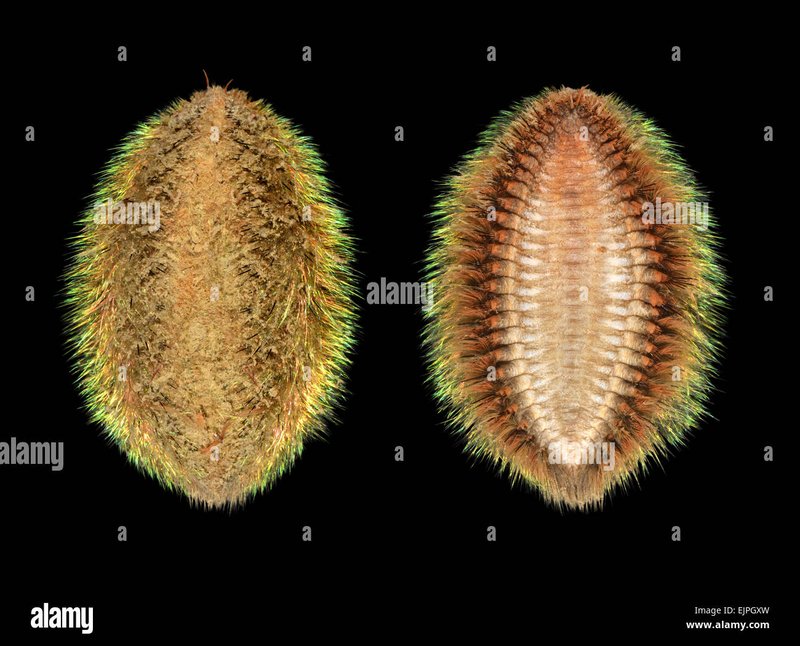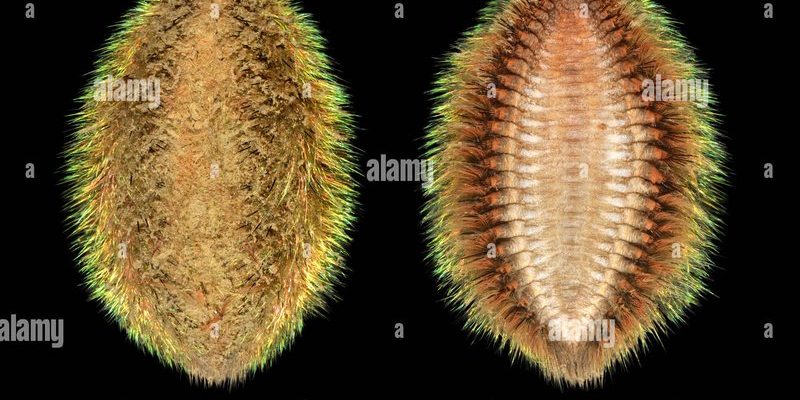
The *Aphrodite aculeata* is not your average snail. With a beautiful, spiraled shell and a lifestyle that’s quite different from terrestrial snails, it’s a creature of wonder. They inhabit deep-sea environments, often nestled among corals and rock formations. Their fascinating biology and behaviors make them a compelling subject for both scientific study and aquaculture. So, can we replicate their natural habitat to study them? Can they thrive in captivity? Let’s explore the ins and outs of housing these unique marine snails.
Understanding the Biology of Aphrodite Aculeata
To understand if *Aphrodite aculeata* can be studied or farmed in captivity, we first need to know a bit about their biology. These snails are part of the family *Aphrodite*, which are known for their beautiful and distinct shells. Their shells aren’t just for show; they serve as protection and a buoyancy aid in the ocean. The anatomy of these snails allows them to adapt to their underwater world, feeding on microorganisms and organic matter.
In captivity, replicating their natural habitat is crucial. *Aphrodite aculeata* typically thrives in deep, cold waters. They prefer stable temperatures and specific salinity levels, which can be challenging to maintain in an aquarium. You might be wondering, how do we achieve that?
Temperature, for instance, should remain consistently cool—around 10 to 15 degrees Celsius. It’s similar to keeping a delicate plant that requires the right amount of sunlight and water. Any fluctuations could stress the snails, making it difficult for them to thrive. Understanding these biological needs is the first step to successful captivity.
Challenges in Captivity
The transition from ocean to aquarium is not as smooth as one might hope. Several challenges arise when trying to keep *Aphrodite aculeata* in captivity. One major concern is their diet. In the wild, they graze on a variety of microscopic algae and organic debris. But, in captivity, replicating that exact diet can be tricky. They might refuse to eat the substitutes offered, leading to malnutrition or stunted growth.
Another challenge is maintaining water quality. These snails are sensitive to changes in their environment. Just like a well-balanced ecosystem, a tiny shift in pH or salinity can have disastrous effects. Imagine trying to maintain a lush garden; a small change in soil quality can lead to wilted plants. For aquarium keepers, this means regular testing and adjustments to keep the snails happy and healthy.
Additionally, the *Aphrodite aculeata* can be susceptible to diseases and parasites, primarily when stressed. When you think of animal care, it’s not just feeding them—you also have to monitor their health closely.
Research Opportunities with Aphrodite Aculeata
Despite the challenges, *Aphrodite aculeata* offers fascinating opportunities for research. Scientists are enthusiastic about studying their unique biological traits, like their reproductive habits and their adaptations to cold-water environments. Research into these aspects can unlock insights into marine biology that are applicable to other species too.
For instance, their reproductive behaviors are intriguing. These snails exhibit a type of hermaphroditism, having both male and female reproductive organs. This feature raises questions about their mating strategies and population dynamics—perfect fodder for researchers looking to understand marine ecosystems better.
But here’s the thing: studying these snails in a lab setting can yield valuable data that could help in conservation efforts. Since they inhabit vulnerable marine environments, understanding their biology could be key to protecting their habitats in the wild.
Potential for Aquaculture
So, can *Aphrodite aculeata* be farmed? The idea is appealing, especially given the interest in sustainable marine practices. Farming these snails could help meet the demand for scientific research while also supporting conservation. However, it requires careful planning and execution.
To successfully farm *Aphrodite aculeata*, you’d need to create an environment that closely mimics their natural habitat. This means investing in high-quality filtration systems, temperature control devices, and monitoring systems to manage water quality. It’s a bit like setting up a mini-ocean in your backyard! You need to consider the size of tanks, the filtration rate, and how to simulate natural light cycles.
Additionally, sourcing the right diet is crucial. Aquaculture may involve developing specialized feeds that can replicate their natural diet. It’s a complex process that could yield important advancements in marine farming techniques, but it requires commitment and expertise.
Ethical Considerations in Captivity
Bringing *Aphrodite aculeata* into captivity raises important ethical questions. How do we ensure their well-being while also studying their biology? It’s vital to focus on their welfare and prevent over-exploitation from the wild.
The goal should be to promote sustainability and conservation. For instance, if farmers can successfully breed these snails in controlled environments, it may reduce the need to harvest them from their natural habitats. This is like having a self-sustaining garden where you can grow your vegetables without depleting wild populations.
Moreover, any research conducted on these snails should prioritize humane treatment and stress reduction. The balance of scientific inquiry and ethical responsibility is crucial in this context.
In summary, *Aphrodite aculeata* presents an intriguing case for both study and potential aquaculture. While the challenges are significant, the rewards could be equally great if approached correctly. The world of marine biology is vast, and this unique sea snail could be a small piece of a much larger puzzle.
As we continue to explore the possibility of keeping these captivating creatures in captivity, it’s important to remember the balance we must strike between research, conservation, and ethical practices. By understanding their needs and creating sustainable practices, we can ensure that *Aphrodite aculeata* can thrive, whether in the depths of the ocean or the controlled conditions of a laboratory or aquarium.
So, whether you’re a budding aquarist or simply curious about marine life, the journey of *Aphrodite aculeata* reminds us of the wonders of our natural world and the delicate balance we must maintain to protect it.

